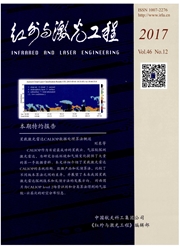

 中文摘要:
中文摘要:
针对支持向量机应用于机载LiDAR点云数据分类时存在的模型稀疏性弱、预测结果缺乏概率意义、核函数必须满足Mercer定理等缺点,提出了一种基于相关向量机的LiDAR点云数据分类算法。在分析稀疏贝叶斯分类模型及参数推断、预测基础上,利用拉普拉斯方法将相关向量机分类问题转化为回归问题,通过最大化边缘似然函数估计超参数,选择序列稀疏贝叶斯学习方法提高训练速度,构造一对余、一对一分类器实现点云数据多元分类研究。选择Niagara地区及非洲某地区的LiDAR点云数据进行实验,实验结果验证了基于相关向量机的点云分类方法的优势。
 英文摘要:
英文摘要:
Aiming at the limitations of support vector machine(SVM) applied in Airborne LiDAR(Light Detection And Ranging) point data classification, such as weak model sparseness, predictions lack of probabilistic sense, and kernel function which must satisfy Mercer′s condition, a novel LiDAR point cloud data classification method was proposed based on relevance vector machine(RVM). Firstly, the sparse Bayesian classification model and the process of parameter inference and prediction were analyzed.Then, the classification problem was transformed into the regression problem by making use of Laplace ′ s method. Next, the hyperparameter estimation was attained by utilizing maximum likelihood method and a sequential sparse Bayesian learning algorithm was selected to improve training speed. Finally, multiple classifiers were built to realize multi-class classification. The LiDAR point cloud datum from Niagara and Africa were selected for experiment based on SVM, and experimental results show the advantages of classification method based on RVM.
 同期刊论文项目
同期刊论文项目
 同项目期刊论文
同项目期刊论文
 期刊信息
期刊信息
